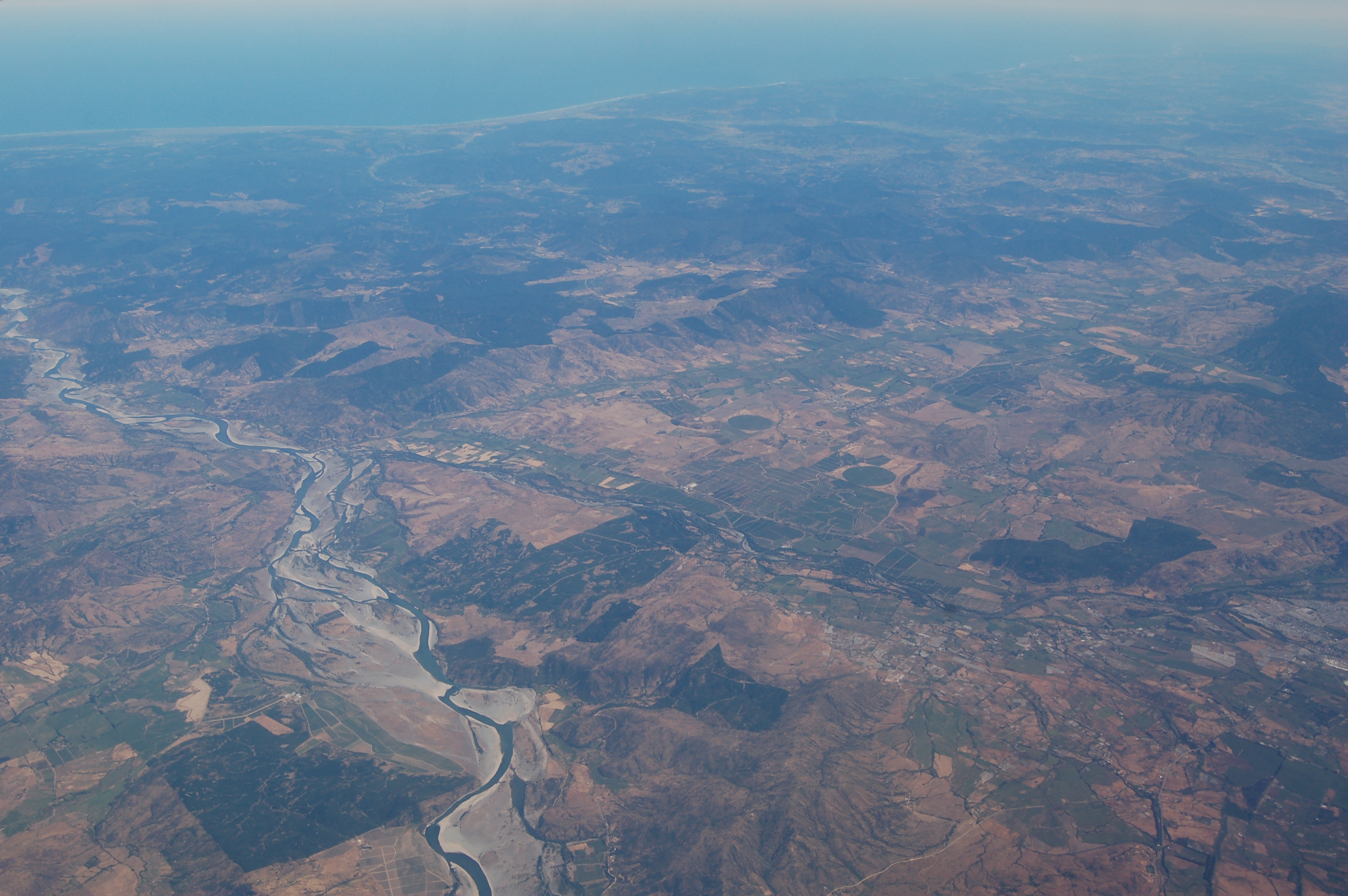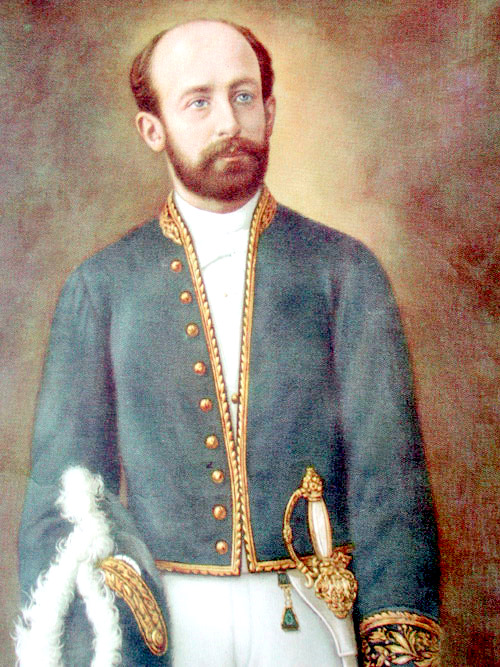|
Pedro Hernández De Córdova
Pedro Hernández de Córdova (? -?) was a Spanish soldier who was occupied in the Arauco War. A Captain in fall of 1564, he led thirty soldiers in an attempt to reinforce Concepcion. Blocked by winter rains and the hostile Mapuche his force remained north of the Maule River until spring of 1565 observing the frontier with the hostiles.Diego Barros Arana, Historia jeneral de Chile, Tomo II, pg. 345 He joined the army of Pedro de Villagra moving south and was with it at the defeat of the Mapuche in the Second Battle of Reinohuelén and in the Battle of Tulmillán and the subsequent months of mopping up operations to suppress the Mapuche revolt north of the Bio-Bio River. In later years he was taken prisoner by the Mapuches and was rescued at the beginning of 1606. References Sources * Diego Barros AranaHistoria jeneral de Chile, Tomo II, R. Jover, Santiago, 1884Original from Oxford University, Digitized Nov 2, 2007 * José Toribio Medina José Toribio Medina Zavala (; Oc ... [...More Info...] [...Related Items...] OR: [Wikipedia] [Google] [Baidu] |
Arauco War
The Arauco War was a long-running conflict between colonial Spaniards and the Mapuche people, mostly fought in the Araucanía region of Chile. The conflict began at first as a reaction to the Spanish conquerors attempting to establish cities and force Mapuches into servitude. It subsequently evolved over time into phases comprising drawn-out sieges, slave-hunting expeditions, pillaging raids, punitive expeditions, and renewed Spanish attempts to secure lost territories. Abduction of women and war rape was common on both sides. The Spaniards penetrated into Mapuche territory during the conquest of Chile until the Battle of Curalaba in 1598 and the following destruction of the Seven Cities led to the establishment of a clear frontier between the Spanish domains and the land of the independent Mapuche. From the 17th to the late 18th century a series of parliaments were held between royal governors and Mapuche lonkos and the war devolved to sporadic pillaging carried out ... [...More Info...] [...Related Items...] OR: [Wikipedia] [Google] [Baidu] |
Maule River
The Maule river or Río Maule ( Mapudungun: ''rainy'') is one of the most important rivers of Chile. It is inextricably linked to the country's pre-Hispanic (Inca) times, the country's conquest, colonial period, wars of Independence, modern history, agriculture (wine, traditional crops), culture (literature, poetry, folklore), religion, economy and politics. The Maule River marked the southern limits of the Inca Empire. Many famous men and women in Chile's history have been born in the Region named after the river. The river has also lent its name to one of the viticultural regions of the country (also known as appellations), the Valley of Maule, a subregion of the Central Valley. Upper reach The river is 240 km long and its basin covers around 20,600 km2. Thirty percent of the basin is located in the Andean range. It is born in Laguna del Maule in Talca Province, at an altitude of 2,200 mt in the vicinity of the border with Argentina. From that point the rivers ... [...More Info...] [...Related Items...] OR: [Wikipedia] [Google] [Baidu] |
Second Battle Of Reinohuelén
The second (symbol: s) is a unit of time derived from the division of the day first into 24 hours, then to 60 minutes, and finally to 60 seconds each (24 × 60 × 60 = 86400). The current and formal definition in the International System of Units (SI) is more precise: The second ..is defined by taking the fixed numerical value of the caesium frequency, Δ''ν''Cs, the unperturbed ground-state hyperfine transition frequency of the caesium 133 atom, to be when expressed in the unit Hz, which is equal to s−1. This current definition was adopted in 1967 when it became feasible to define the second based on fundamental properties of nature with caesium clocks. As the speed of Earth's rotation varies and is slowing ever so slightly, a leap second is added at irregular intervals to civil time to keep clocks in sync with Earth's rotation. The definition that is based on of a rotation of the earth is still used by the Universal Time 1 (UT1) system. Etymology "Minute" comes ... [...More Info...] [...Related Items...] OR: [Wikipedia] [Google] [Baidu] |
Battle Of Tulmillán
A battle is an occurrence of combat in warfare between opposing military units of any number or size. A war usually consists of multiple battles. In general, a battle is a military engagement that is well defined in duration, area, and force commitment. An engagement with only limited commitment between the forces and without decisive results is sometimes called a skirmish. The word "battle" can also be used infrequently to refer to an entire operational campaign, although this usage greatly diverges from its conventional or customary meaning. Generally, the word "battle" is used for such campaigns if referring to a protracted combat encounter in which either one or both of the combatants had the same methods, resources, and strategic objectives throughout the encounter. Some prominent examples of this would be the Battle of the Atlantic, Battle of Britain, and the Battle of France, all in World War II. Wars and military campaigns are guided by military strategy, whereas batt ... [...More Info...] [...Related Items...] OR: [Wikipedia] [Google] [Baidu] |
Diego Barros Arana
Diego Jacinto Agustín Barros Arana (; August 16, 1830 – November 4, 1907) was a Chilean professor, legislator, minister and diplomat. He is considered the most important Chilean historian of the 19th century. His main work ''General History of Chile'' () is a 15-volume work that spanned over 300 years of the nation's history. Barros Arana was of Basque descent. He also was an educator and a . He was director of the Instituto Nacional, a public high school, and of the University of Chile
The University of Chile () is a public university, public research university in Santiago ...
[...More Info...] [...Related Items...] OR: [Wikipedia] [Google] [Baidu] |
José Toribio Medina
José Toribio Medina Zavala (; October 21, 1852 - December 11, 1930) was a Chilean bibliographer, prolific writer, and historian. He is renowned for his study of colonial literature in Chile, printing in Spanish America and large bibliographies such as the ''Biblioteca Hispano-Americana.'' (7 Vol., 1898-1907.) Biography Jose Toribio Medina was born in Santiago, Chile. He was the eldest son of José del Pilar Medina y Valderrama and Mariana Zavala y Almeida, a woman of Basque descent."Jose Toribio Medina." ''Encyclopedia of World Biography''. Vol. 24. Detroit: Gale, 2005. ''Biography in Context''. Web. 10 Apr. 2014. His father was a lawyer, and he discouraged Medina from bibliographic studies in favor of a more practical career.Chapman, C. E. (1931). A "Recuerdo" of José Toribio Medina. ''The Hispanic American Historical Review'', ''11''(4), 524–529. https://doi.org/10.1215/00182168-11.4.524, p. 527. He was constantly traveling due to his position as a magistrate, and Medina spe ... [...More Info...] [...Related Items...] OR: [Wikipedia] [Google] [Baidu] |
People Of The Arauco War
The term "the people" refers to the public or common mass of people of a polity. As such it is a concept of human rights law, international law as well as constitutional law, particularly used for claims of popular sovereignty. In contrast, a people is any plurality of persons considered as a whole. Used in politics and law, the term "a people" refers to the collective or community of an ethnic group or nation. Concepts Legal Chapter One, Article One of the Charter of the United Nations states that "peoples" have the right to self-determination. Though the mere status as peoples and the right to self-determination, as for example in the case of Indigenous peoples (''peoples'', as in all groups of indigenous people, not merely all indigenous persons as in ''indigenous people''), does not automatically provide for independent sovereignty and therefore secession. Indeed, judge Ivor Jennings identified the inherent problems in the right of "peoples" to self-determination, as i ... [...More Info...] [...Related Items...] OR: [Wikipedia] [Google] [Baidu] |


